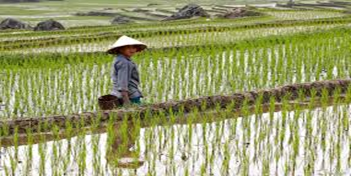“As long as there are people, there will be things” – a Covid-19 slogan used in Vietnam to represent the importance of unity.
Throughout my second year of studying at the University of Westminster, I chose the module ‘Learning in an International Environment’ which was led graciously by Farhang Morady. Upon my time studying this module, it was based widely on the country of Vietnam, as well as economic events following Doi Moi. Nevertheless, upon this duration I had understood something really important; Vietnam is more than a country that has been subjected to, as well as currently in the process of, large scale economic growth. Despite the conspicuously successful economic transition following 1986, a saliently deeper characteristic of Vietnam’s success is the prevalent nationalism across the country. I had understood that the success of Vietnam lied with the people that work in uniformity to produce the best for their nation.
Accordingly, I was intrigued to understand the history of Vietnam including the period of colonisation, the Vietnam War, the adoption of Doi Moi and the economic growth that followed. France’s gained control of the entire country by 1883 was what I found most compelling. Hence, it was fascinating to understand the effects of colonialism on Vietnam’s sense of nationalism. The control of France over Vietnam was not smooth alongside the rising tide of Vietnamese nationalism. French imperialists in Vietnam claimed it was their responsibility to colonise undeveloped regions to introduce modern political ideas, social reforms, industrial methods, and new technologies. Consequently, I found it most interesting that Vietnam was subjected to a regional reunification of North and South Vietnam in 1975 following the war and independence. In this case, I understood it had signalled the need for major economic changes to be made which was known as ‘Doi Moi’ that translates to ‘restoration’ of 1986.
On a contemporary note, upon my research, I was surprised to understand that the number of foreign tourists reached an all-time high of 18 million in 2019, up 16.2 percent year-on-year. 14.3 million or 79 percent of the total were Asian visitors, up 19 percent. Hence, with the vast economic growth, Vietnam is developing its major cities and transitioning largely to one of many South East Asia’s top tourist destinations. Subsequently, the increase in tourism has contributed to the economic growth of the country in turn. On top of this, the country is known to be a producer of goods that include rice, coffee and clothes. Vietnam is home to a large scope of rice fields that cater to domestic and international populations.
Overall, despite what was mentioned, my knowledge on Vietnam is limited as it remains a country that is rich in history, culture and so on – making it difficult to gain an overall conclusion. In this case, I look forward to the Vietnam virtual field trip in order to expand more on aspects such as the colonial history, culture, food and people, as well as doing my own background research.
Rayan Haji, Year 2, BA (Hons) Politics and International Relations.
